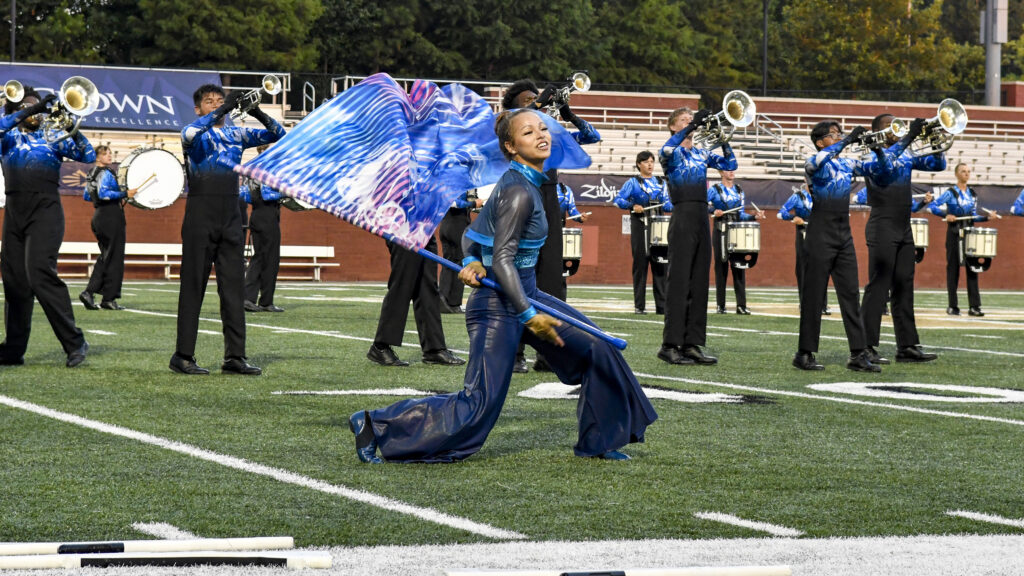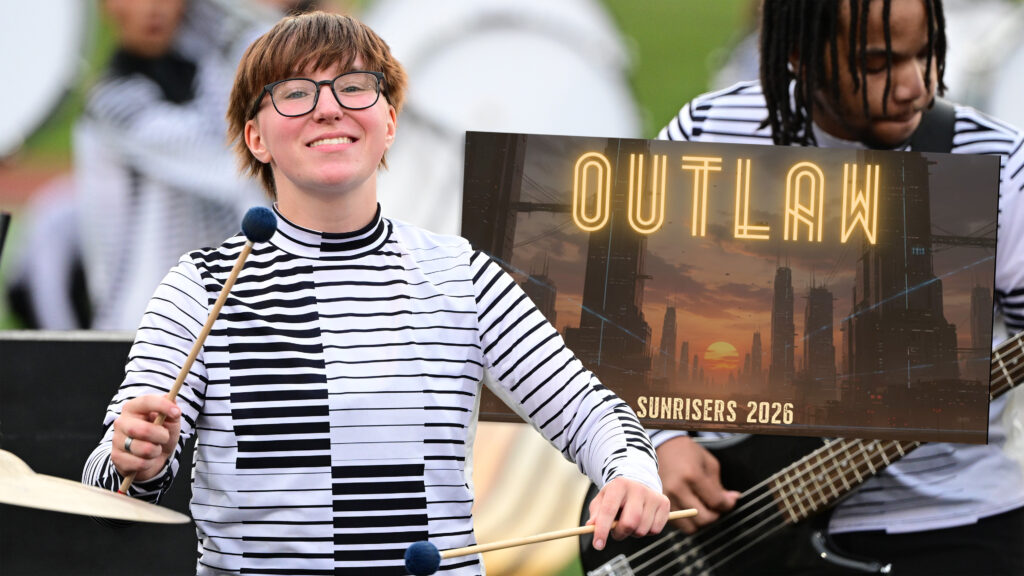The band staff and band students at Cowita High School in Cowita, Okla., take the PBS broadcast of Drum Corps International very seriously as an educational tool. The students and band staff at Cowita watch “Just to get the concept of selling an idea to the crowd, to get the kids excited about performing for a crowd, to see the potential. We have had success doing that over the years (with the help of the PBS broadcast),” said Tim Brandt, head band director at Cowita. Brandt is in his 14th year at Cowita, and he is also the current president of the Oklahoma Bandmasters Association. Brandt’s son, John, played in the Spirit of Jacksonville University’s percussion pit this past summer. “(We watch it) to see what we’re trying to (accomplish) at the highest level it is done,” Brandt said.Cowita assistant band director Doyle Burress says that their students watch to see “How intensely (the corps) rehearse, (and to see how) when you rehearse that long and that intensely, how excellent the performance can be,” Burress said. “It’s a rare opportunity that our kids get to see a performance of that magnitude.” Burress is in his third year at Cowita, and his son, Michael, marched in the guard with Tulsa’s Black Gold corps (now inactive) and later with the Cavaliers.Brandt added that many high school bands around the United States watch the PBS broadcast to get new ideas about design, concepts and equipment. “A lot of what the marching bands are doing is what they have seen on the PBS broadcast,” Brandt said.”Many of my students will tape it,” Brandt said of the broadcast, adding that several will hold “watch parties” where a group of students will watch the broadcast together and enjoy refreshments.Note: To order The Legacy Collection of historical Drum Corps International DVDs.
- Marching Music's Major LeagueTM





